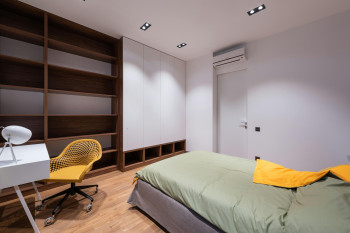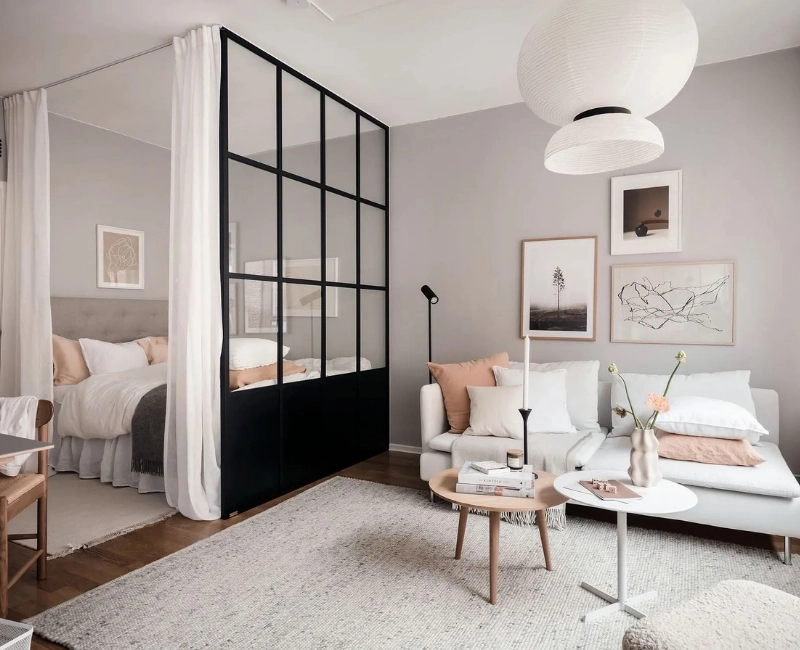What does the recent decision to lift the ban on studio apartment construction mean for the real estate market? Why did authorities impose this restriction in the first place, and how will its removal impact investors, renters, and urban development? This article explores the implications of this policy shift and what it means for the future of housing.
The Return of Studio Apartments: A Policy Reversal
After years of restrictions, Turkish authorities have reinstated permission for the construction of studio apartments, marking a significant shift in urban housing policy. These compact living spaces, typically ranging between 25-40 square meters, were previously banned due to concerns over overcrowding and substandard living conditions. However, rising housing costs and increasing demand for affordable urban housing have prompted policymakers to reconsider.
For example, in Istanbul—where housing prices have surged by over 200% in the past decade—the reintroduction of studio apartments could provide much-needed relief for young professionals and students struggling with high rents. Developers are already preparing new projects in central districts like Şişli and Kadıköy, where demand for small, well-located units remains strong.
Why Were Studio Apartments Banned in the First Place?
The original ban on studio apartments stemmed from several urban planning concerns. Authorities argued that these ultra-compact units often led to overpopulated neighborhoods, strained infrastructure, and diminished quality of life. Some municipalities also raised issues about developers exploiting loopholes to build excessively small, poorly ventilated spaces marketed as "luxury studios."
In Ankara, for instance, a 2018 investigation revealed that certain projects advertised as studios were essentially single rooms with combined kitchenettes and bathrooms, violating basic habitation standards. Such cases fueled the push for stricter regulations, culminating in the nationwide ban. However, with proper oversight, proponents argue that studios can be a viable solution to housing shortages.
Economic and Social Implications of the Policy Change
The decision to allow studio apartments again carries significant economic and social repercussions. For investors, these units offer higher rental yields compared to larger apartments—a key factor in cities like Izmir, where rental income averages 5-7% annually for studios versus 3-4% for two-bedroom units. For tenants, studios provide an affordable entry point into expensive urban markets.
However, critics warn that unchecked construction could exacerbate urban sprawl. A balanced approach—such as limiting studio concentrations in specific zones or mandating minimum design standards—may help mitigate these risks while addressing housing needs.
Design Innovations in Modern Studio Apartments
Contemporary studio apartments are shedding their reputation as cramped spaces thanks to smart design innovations. Developers now incorporate features like foldable furniture, modular kitchens, and multi-functional partitions to maximize usability. In projects like Istanbul's "Mini Living" complex, units use retractable beds and convertible desks to create adaptable living environments.
These advancements not only improve livability but also enhance property values. A well-designed 35-square-meter studio in central locations can now command rents only 15-20% lower than a 50-square-meter one-bedroom unit, making them attractive for both landlords and tenants.

What This Means for Turkey's Housing Market
The reintroduction of studio apartments is poised to reshape Turkey's real estate landscape in several ways:
- Increased affordability: More options for low- and middle-income buyers
- Higher construction activity: New projects expected in major cities
- Shift in rental dynamics: Potential downward pressure on rents for larger units
As seen in similar markets like Barcelona and Tokyo, properly regulated studio apartments can coexist with traditional housing while addressing urban density challenges. The key lies in implementing balanced policies that prevent exploitation while encouraging innovative, space-efficient designs.
Key Considerations for Buyers and Investors
For those considering studio apartment investments, several factors deserve attention:
- Location: Central areas with strong rental demand yield better returns
- Building amenities: Shared spaces like laundries or co-working areas add value
- Future resale potential: Research local market absorption rates
A recent project in Ankara's Çankaya district demonstrates this well—studios with access to a shared rooftop garden leased 30% faster than comparable units without such amenities. This highlights how thoughtful design and location choices can make even compact spaces desirable.






